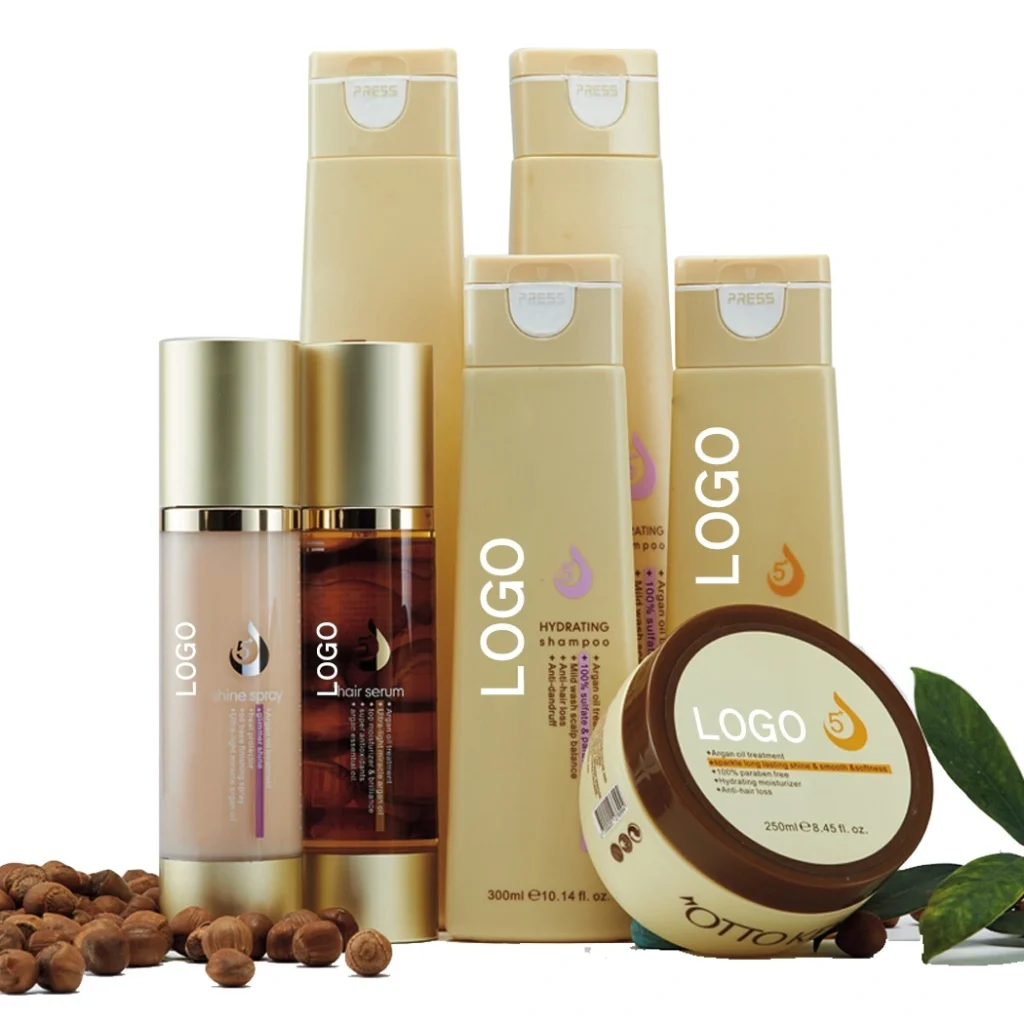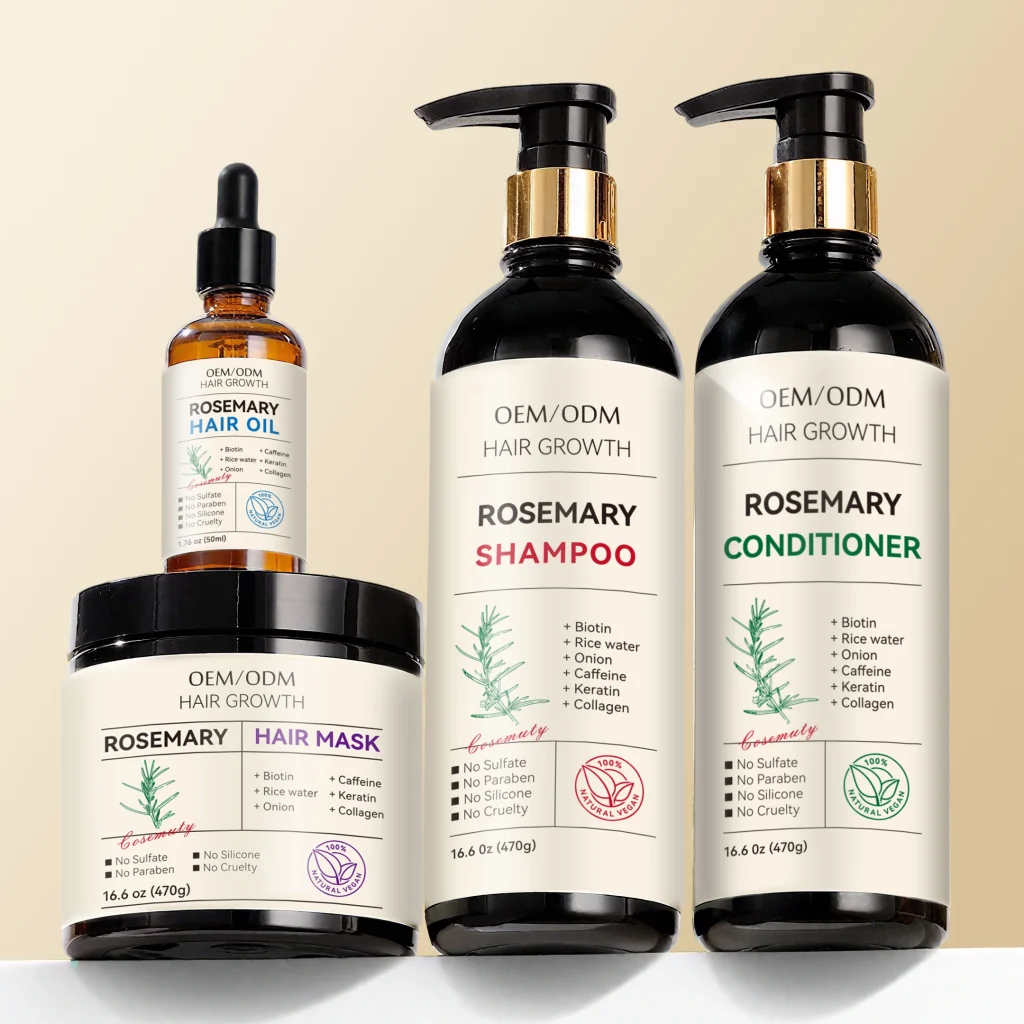The dream of launching your own line of hair care products is more achievable than ever. The engine that turns this dream into reality is your partnership with a private label hair care manufacturer. This strategic guide is your comprehensive roadmap, walking you through the essential steps of selecting the right hair products manufacturers, understanding the process from concept to shipment, and positioning your brand for success in a competitive market. Whether you’re interested inaerosol products or specialized pomades, this guide will illuminate the path forward.The journey of creating a successful brand is filled with innovation and strategic decisions. For a deeper look at what makes private label ventures successful, explore our case study on the allure of private label hair care products.
Introduction: Why Private Label Hair Care?
The allure of private label lies in its efficiency and accessibility. Instead of investing millions in research, development, and production facilities, you can leverage the expertise and infrastructure of established hair care OEM specialists. This model allows you to focus on what you do best: building your brand, marketing, and connecting with your customers. The rise of niche markets, as seen in our exploration of the rise of niche hair products, proves that there’s ample room for innovative brands.

Chapter 1: The Landscape of Hair Products Manufacturers
Not all hair products manufacturers are created equal. Understanding the nuances is your first strategic step.
- Full-Service OEM (Original Equipment Manufacturer) Partners: These partners, like Dinghui Cosmetics, offer end-to-end services. They work with you to create custom formulations from scratch, handle R&D, design, filling, and packaging. This is ideal for brands seeking unique, innovative products and full creative control.
- Private Label Suppliers: They typically offer a catalog of pre-formulated, proven products that you can brand as your own. This is a faster, more cost-effective route for startups looking to quickly enter the market.
- Specialized Manufacturers: Some hair products manufacturers focus on specific categories or technologies. You might find experts in organic formulations, high-tech hair growth serums, or specific product types like hair styling aerosol manufacture and hair pomade manufacturers. Your product line’s focus will directly dictate your choice.
Key Takeaway: Your decision between an OEM and a private label supplier will fundamentally shape your brand’s identity, scalability, and initial investment. For deep dives into specific types, learn about the artistry of pomade manufacturers and the intricate world of aerosol manufacture.
Chapter 2: The Step-by-Step Journey with a Manufacturer
A transparent process is key to a successful partnership. Here’s what to expect:
- Initial Consultation & Briefing: You’ll discuss your vision, target market, budget, and desired products (e.g., shampoos, conditioners, serums, or styling aerosols).
- Proposal & Quotation: The manufacturer provides a detailed quote covering formulation, Minimum Order Quantity (MOQ), pricing, and timeline.
- Formulation & Sampling (OEM): For custom projects, the lab creates initial samples. This stage may involve several iterations to perfect the texture, scent, and efficacy.
- Design & Packaging: You finalize the bottle, tube, or jar design, along with labels. Your manufacturer should guide you on material suitability and printing techniques.
- Production & Quality Control: Once samples are approved, full-scale production begins. Rigorous Quality Control (QC) checks at every stage are non-negotiable for any reputable hair care OEM.
- Shipping & Delivery: The finished products are packaged and shipped to your designated location.
Chapter 3: Key Considerations for a Successful Partnership
Beyond the basics, several factors separate a good partnership from a great one.
- Minimum Order Quantity (MOQ): Understand the MOQ per SKU. It can range from a few thousand units for private label to much higher for complex custom formulations. This is a critical factor for budgeting.
- Certifications & Compliance: Ensure your chosen hair products manufacturer holds relevant certifications like ISO 22716 (GMP for cosmetics), FDA registration, and Halal or Vegan certifications if required for your market. This is your assurance of quality and safety.
- Lead Times: Be realistic about timelines. From sampling to final delivery, the process can take several months. Plan your product launches accordingly.
- Communication & Transparency: Choose a partner who communicates clearly and proactively. Language barriers and time zones should be managed effectively.

Chapter 4: Incorporating 2025 Trends into Your Product Line
Staying ahead of trends is crucial. Here’s how to integrate them with your hair products manufacturers:
- Scalp Health as the New Frontier: The trend toward scalp scrubs and treatments is booming. Work with your manufacturer to develop formulas that balance the microbiome and promote a healthy foundation for hair growth, a trend explored in the evolution of hair care trends.
- Waterless & Concentrated Formulas: Respond to the demand for sustainability with waterless shampoo bars and concentrated refills that reduce plastic and shipping weight.
- Hyper-Personalization: Leverage your manufacturer’s ability to create multi-dose systems or targeted serums that allow consumers to customize their routines. The work of innovative hair growth companies is a prime example.
- Nature-Forward & Science-Backed: Fusion products that use natural ingredients like those found in nature’s finest ingredients but are validated by scientific data will dominate. Think probiotic complexes or plant-based stem cells. This is evident in the advanced, evidence-based approaches taken by innovative hair growth companies and the sophisticated color treatments developed by modern hair color manufacturer partners.
Chapter 5: From Manufacturer to Market – Building Your Brand
Your relationship with the manufacturer is the first step; building the brand is the next. For a detailed roadmap, our guide on how to start your own hair oil business offers invaluable steps.
- Define Your Unique Selling Proposition (USP): What makes your brand different? Is it your ingredient story, your ethical stance, or your targeted solutions?
- Develop a Compelling Brand Story: Consumers connect with stories. Weave your “why” into all your marketing materials.
- Plan Your Marketing Launch: Utilize social media, influencer partnerships, and content marketing to create buzz. Understanding the top hair style brands and trends in 2025 will give you a competitive edge.
Taking the first step can be the most daunting. If you have a specific product in mind, such as a hair oil, a focused approach can be an excellent starting point. Our detailed guide on How Can I Start My Own Hair Oil Business? provides a step-by-step roadmap to navigate the initial stages of brand creation, from market research to launching your first product.
Conclusion: Your Success is a Partnership
The journey of creating a successful private label hair care line is complex but immensely rewarding. The single most important decision you will make is choosing the right hair products manufacturer—a partner who is not just a supplier but an extension of your team. By understanding the landscape, the process, and the future trends, you are now equipped to make informed decisions and build a brand that resonates in the hearts and homes of your customers.
Ready to take the next step? Contact us at Dinghui Cosmetics to discuss how our expertise as a full-service hair care OEM can bring your vision to life.